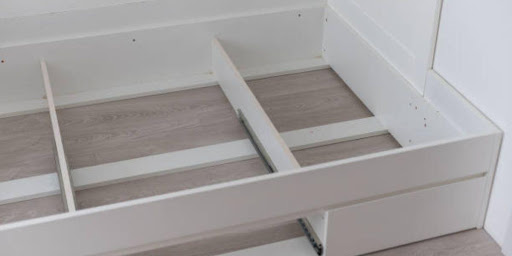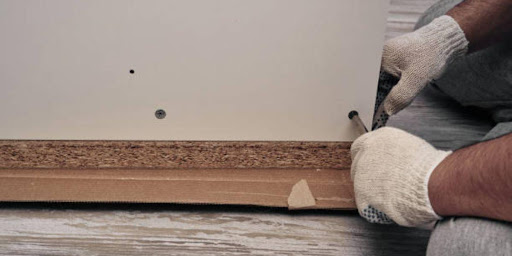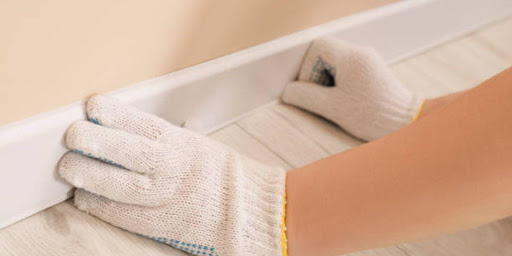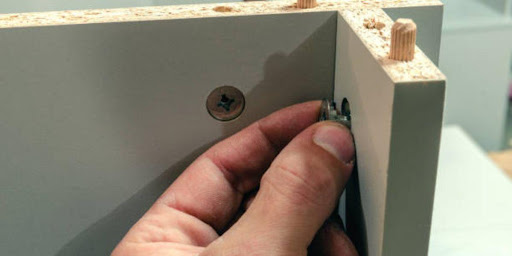Power Articles
Industry Elevating Content
Interior Doors: Hollow Core vs. Solid Core

PowerArticles
Nov. 6, 2023
When it comes to interior doors in the world of home improvement, one crucial decision that often arises is choosing between two primary types: hollow core doors and solid core doors. This choice can significantly impact the overall look, soundproofing, and durability of a space. In this article, we’ll provide a straightforward comparison of these two door types to help home improvement companies make informed decisions when installing windows and doors for their clients.
Understanding Interior Doors.
Interior doors are essential elements in any home. They serve as functional barriers between rooms, providing privacy, security, and separation. However, their importance goes beyond mere functionality. Interior doors play a significant role in enhancing the overall aesthetics and functionality of a home. They contribute to the interior design by adding character, style, and visual appeal to the living space.
Interior doors come in various styles, materials, and finishes, allowing homeowners to customize them to match their interior décor. Whether you prefer a classic, rustic, or contemporary look, interior doors can be tailored to harmonize with the overall design scheme. Their diverse range of designs, from panel doors to French doors, allows you to express your personal taste and elevate your home’s beauty.
Moreover, interior doors influence the flow of natural light and ventilation within the house. The right choice of door can optimize the use of daylight and airflow, making your living spaces more comfortable and energy-efficient.
The significance of choosing the right type of interior door for different rooms.
Choosing the right type of interior door for different rooms is crucial to ensure optimal functionality and aesthetics. Each room has unique requirements, and interior doors can be customized to meet these needs.
For instance, bedrooms and bathrooms demand privacy, so solid doors with good sound insulation properties are ideal. In shared living spaces like the living room or kitchen, doors can be chosen to complement the décor while allowing light to flow. Sliding or folding doors can be great choices to save space in smaller rooms or open up larger ones.
In high-traffic areas like hallways, durability is vital to withstand constant use, making solid core doors a practical choice. Closets and storage spaces may benefit from cost-effective hollow core doors.
Ultimately, selecting the right interior door for each room ensures a harmonious blend of functionality and style throughout your home, making it a comfortable and visually appealing living space.

Hollow Core Interior Doors
Hollow core interior doors are a cost-effective option used in many homes. They are constructed with a lightweight wooden frame, typically made from pine or composite materials. The inner core is hollow, hence the name, and is often filled with a honeycomb-like cardboard or a lattice of wooden strips. The door’s outer surfaces are covered with thin plywood or medium-density fiberboard (MDF) veneers, which can be painted or stained to achieve various finishes.
Advantages of hollow core doors:
- Cost-effectiveness: Hollow core doors are budget-friendly, making them an attractive choice for those looking to save on home improvement costs.
- Lightweight: Thanks to their hollow construction, these doors are lightweight and easy to handle, making installation a simpler task compared to heavier solid core doors.
Disadvantages of hollow core doors:
- Reduced sound insulation: Hollow core doors offer limited soundproofing, which means they may not provide sufficient privacy in bedrooms or bathrooms. They allow more noise to pass through compared to solid core doors.
- Durability concerns: While suitable for less demanding areas, hollow core doors may not be as sturdy as solid core doors. They are more susceptible to damage from impacts, such as dents and holes.
Solid Core Interior Doors
Solid core interior doors are a type of interior door known for their sturdy and substantial construction. Unlike hollow core doors, which are made of a cardboard honeycomb or particleboard core covered with a thin veneer, solid core doors consist of a dense core material sandwiched between two layers of high-quality wood or MDF (medium-density fiberboard). This core material is typically a solid wood block or a composite material, making the door heavy and robust.
Advantages of Solid Core Doors:
- Improved Sound Insulation: One of the primary advantages of solid core doors is their excellent sound insulation. The dense core material minimizes sound transmission, making them ideal for spaces where privacy and noise reduction are crucial, such as bedrooms and home offices. Solid core doors can help create a quieter and more peaceful environment within your home.
- Enhanced Durability: Solid core doors are renowned for their durability and longevity. Their solid construction makes them resistant to dents, warping, and other forms of wear and tear. This durability ensures that they can withstand daily use and continue to look and perform well for many years, saving you money on replacement and maintenance costs.
Disadvantages of Solid Core Doors:
- Higher Cost: While solid core doors offer substantial benefits, they are generally more expensive than their hollow core counterparts. The quality materials and craftsmanship involved in their construction contribute to the higher price tag. However, the investment in a solid core door is often justified by their longevity and performance.
Heavier Weight: Due to their dense core material, solid core doors are significantly heavier than hollow core doors. Handling and installing these doors may require more effort and, in some cases, specialized hardware and professional installation to ensure proper alignment and functionality.

Choosing the Right Door for the Job
Room-Specific Recommendations:
Selecting the appropriate door type for different areas within a house is crucial to maximize the benefits of solid core doors. Solid core doors are ideal for bedrooms, home offices, and any room where sound insulation and privacy are essential. In contrast, hollow core doors can be suitable for spaces like closets or laundry rooms where noise reduction is not a primary concern.
Customer Preferences:
When helping clients choose the right interior door, it’s essential to consider their specific needs and preferences. Discuss factors like aesthetics, budget, and the intended use of the door. Solid core doors may be the preferred choice for homeowners looking for longevity and enhanced performance, while those on a tighter budget may opt for hollow core doors. Ensure open communication with your clients to guide them in making the best choice for their home improvement project, meeting both their functional and aesthetic goals.

Conclusion
In conclusion, when it comes to interior doors, the choice between hollow core and solid core doors depends on the specific needs and budget of the project. Hollow core doors are a cost-effective option, offering lighter weight and basic sound insulation, making them suitable for less frequented areas. On the other hand, solid core doors provide enhanced durability and soundproofing, making them ideal for high-traffic spaces or rooms where privacy and noise control are paramount. It’s important for home improvement companies to consider the location and purpose of the door when making this decision, ensuring that they deliver the best value and performance for their clients’ needs.
Published By
PowerArticles
Nov. 6, 2023